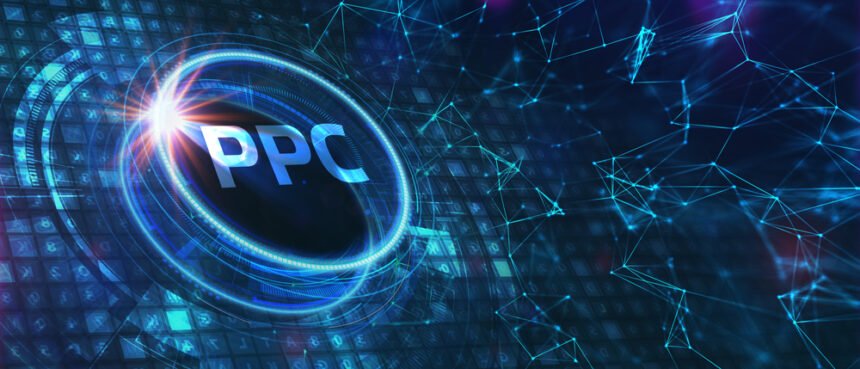PPC marketing has become a lot more popular, largely due to the growing benefits of data-driven marketing strategies with pay-per-click strategies. Marketers can use big data to squeeze more value out of their paid search marketing campaigns.
However, despite the major advances of data-driven and AI technology in the search marketing field, many marketers still struggle. They need to understand the best ways to leverage big data to get more bang for their buck.
Big Data Makes PPC Marketing Even More Beneficial
The underlying purpose of PPC advertising is to increase sales, generate leads, and promote brand awareness. It is all about how relevant your content is to the audience searching for specific keywords. Users are searching for particular products, services, and information at any given time, and you can connect your brand to these respective audiences through targeted campaigns.
Big data can be useful for all of these aspects of your campaign. PPC Hero talked about the evolving role of data science in PPC. You should take their comments to heart.
Even the experts at Finsbury Media London PPC Agency explain that using relevant data can make all the difference between a successful and unsuccessful PPC campaign.
By carefully structuring your campaigns with big data, you can benefit from profitable PPC campaigns that deliver long-standing results for your business. However, there are many features and factors that you should consider before investing. To simplify this task for you, we have assembled an ultimate guide to PPC marketing below.
How does data-driven PPC marketing work?
You must be tired of hearing about PPC and still having no clue about how it functions. Pay-per-click advertising is widespread in search engine results pages (SERPs), like Google or Bing, but is commonly used to incorporate paid advertising on social media platforms such as Facebook and LinkedIn.
If you’re wondering where you can find pay-per-click ads, they’re the results you see at the top and bottom of your organic search results. Many businesses hire competent Google ads management companies to get ahead of their competitors from the very start. Doing so will put you in good hands from the outset as it’s important to partner with experienced agencies or freelancers who understand the complexities behind PPC advertising.
What are the benefits of PPC with big data?
With the correct strategy, a data-driven PPC can generate immediate leads and sales for your business. It offers the ability to target consumers on a range of criteria including search terms, location and demographics.
SEO is another important digital component used by many businesses. And, we’re commonly asked “should we do PPC or SEO?”. Well, SEO focuses on increasing your organic ranking on search results, but it is simply not enough these days. Why?
The answer is simple; keywords are becoming increasingly competitive because they reach their saturation point very soon. It makes it more difficult for small businesses with low domain authority to get into the top rankings on a popular search engine or in front of their target audience on a social platform.
So many business owners use PPC ads to gain immediate traffic and results, but this should also be supported with some SEO. Doing so will yield the best results for your business and ensure you’re able to drive a higher volume of targeted traffic to your website.
What are the most popular PPC platforms?
There are mainly two leading platforms for PPC marketing – Google advertising and Bing advertising. Both platforms monetize their traffic through advertising and provide a good basis to generate new business. However, Google occupies a much higher market share then Bing across the world, and is usually the starting point for many businesses and advertisers alike.
Here’s how they differ –
- Google Ads – They are present on Google, Search Partner sites, YouTube, Gmail and Display Network sites, making them the largest pay-per-click platform. Google Ads was launched in October 2000 and has gone through some significant changes and improvements in the past 17 years. The platform continues to grow and offers advertisers a range of ways to connect with their target audience.
Google Ads caters to companies’ entire spectrum, from small businesses to Fortune 500 companies, with its cutting-edge analytics and reach.
2. Bing Ads – Similar to Google Ads, Bing Ads is a pay-per-click platform showing ads on the Microsoft and Yahoo networks. The platform generates a fraction of the traffic available on Google and is typically used by the older population. However, it still offers an effective means to add more enquiries and sales from your digital ad spend.
Microsoft Advertising is primarily keyword-based advertising. Microsoft Advertising features more than 150 million unique desktop users on Bing and has catered to many advertisers ever since.
Keywords
Keywords sit at the core of all PPC advertising campaigns. If your keywords are not optimized for maximum performance, or have not been well considered, the likelihood is you will generate poor results. Why?
Suppose your keywords are relevant, and you do your research to ensure there’s close synergy between the keywords and your products or services. In this case, you’ll allow your business to reach a targeted audience who are more likely to convert. This also helps to increase your content’s relevance and your ads’ quality score.
Quality score is a proprietary metric used by Google that showcases your ads relevance. If Google believes there’s a strong correlation between your keywords, adverts and landing pages, you will benefit from a higher quality score. The higher your quality score, the lower your cost-per-click – meaning you can drive your targeting traffic within your monthly budget!
Big Data is the Key to Valuable PPC Campaigns
There are a lot of great reasons to use big data in your marketing strategies. Marketers have found that data science is making PPC marketing more effective than ever. You should take the lessons above to heart.






